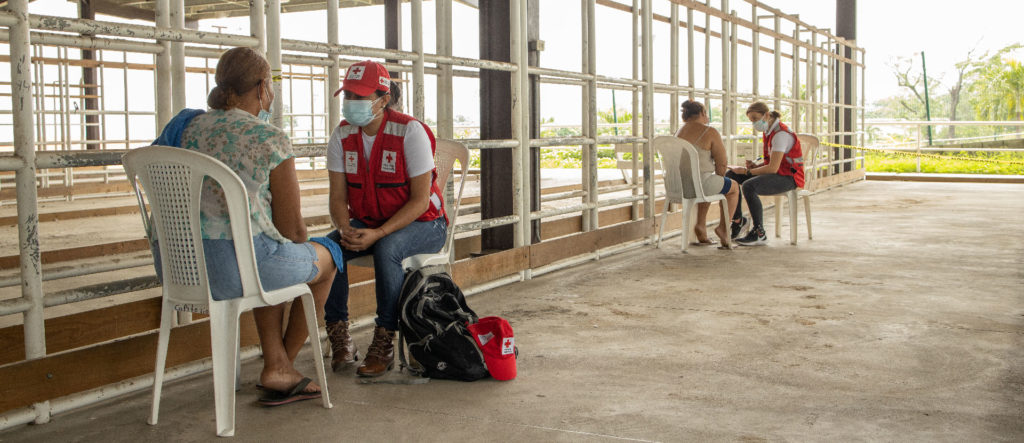Member States of the World Health Assembly demonstrated their commitment to addressing mental health concerns in public health emergencies at the recent World Health Organization’s Executive Board meeting, where a report by the WHO Director General on mental health preparedness and response for the COVID-19 pandemic was adopted by the Member States. This report urges member states of WHO to take effective action toward developing and strengthening mental health services and psychosocial support. On January 21st, the 194 Member States approved the decision enclosed in the report, with 45 Member States specifically championing (co-sponsoring) the document though its adoption. Their strong commitment sends a clear message that improving mental health and psychosocial support services is a crucial societal need for all countries, now more than ever.
The Constitution of WHO defines health as “…a state of complete physical, mental and social well-being and not merely the absence of disease or infirmity, and declares that the enjoyment of the highest attainable standard of health is one of the fundamental rights of every human being, without distinction of race, religion, political belief, economic or social condition.”
As COVID-19 has demonstrated, public health emergencies pose significant risks on the mental and psychosocial health of all people, particularly for health and social care workers, frontline workers/volunteers and those in vulnerable situations. The direct and indirect ramifications of COVID-19 have shed light on the need to expand mental health services on a global scale.
WHO recognized the need to endorse the updated comprehensive mental health action plan 2013–2030, with a focus on the implementation options and indicators to support the recovery from COVID-19. This includes promoting mental health and psychosocial well-being, expanding mental health services and psychosocial supports, strengthening preparedness and building response capacity and resilience for future public health emergencies.
This draft calls for member states to allocate adequate funding and utilize essential and cost-effective technologies that support the expansion of mental health services for all affected populations. Additionally, the Director-General is encouraged to provide technical support to member states for monitoring changes and disruptions in services and to support mental health services for community resilience and engagement. It also emphasizes the need to strengthen WHO’s capacity on mental health at global, regional and country levels to a systematic integration of mental health into all aspects of the work of the Secretariat on universal health coverage.
“The recommendations included in the draft decision from WHO’s Executive Board build on and align with the International Red Cross Red Crescent Movement’s Policy on Addressing the Mental health and psychosocial impacts of armed conflict, natural disasters and other emergencies and our Resolution on the same topic signed with State Parties at the International Conference in December 2019. It is heartening to see the positive dividends arising from multiple years of humanitarian diplomacy on MHPSS in emergencies and the continued momentum and high-level engagement on this topic from Governments and the WHO,” says Sarah Harrison, MHPSS Technical Advisor at the PS Centre.
The RCRC Movement with its 14 million volunteers, and National Societies in their auxiliary role remain committed to working with Governments and other actors to help address the mental health and psychosocial impacts of emergencies, including public health emergencies and the road to recovery from COVID-19.

